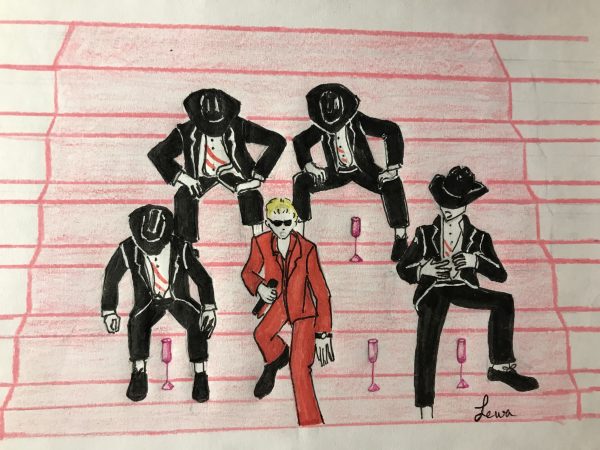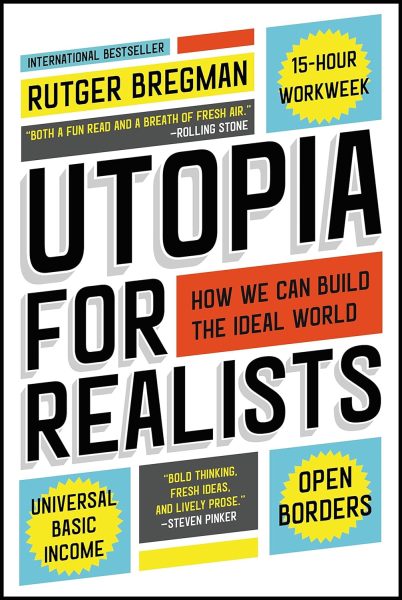Don’t Look Up Movie Review
Since the Oscar season is coming up, I decided to check out the science fiction film Don’t Look Up, and here are my thoughts. While humorously morbid and satirical, the film’s trivialization of the climate crisis and depressing tone drags it down.
Don’t Look Up follows two scientists, Kate Dibiasky (Jennifer Lawrence), a Ph.D. candidate, and Dr. Randall Mindy (Leonardo DiCaprio), in their discovery of a comet that is on its way to strike the planet Earth and cause an extinction-level event, much like the extinction of the dinosaurs. Unfortunately for the trio, President Janie Orlean (Meryl Streep), her son and Chief of Staff Jason Orlean (Jonah Hill), her allies, and her billionaire donor Peter Isherwell (Mark Rylance), are much more worried about a Supreme Court appointment and the upcoming election. After discovering multiple priceless minerals on the comet, the President and her allies decide to “sit and assess,” electing to not destroy it, but mine it before it impacts Earth. Dibiasky and Mindy then undergo a long journey to inform the public about their discovery, all while President Orlean begins a campaign titled #Don’tLookUp in order to discourage citizens from paying attention to the comet.
Throughout scenes, the tone of Don’t Look Up presents itself as a dark comedy but ends up just being depressing. Its overuse of famous actors takes away from the centralization of the main character. It stars Leonardo DiCaprio, Jennifer Lawrence, Cate Blanchett, Tyler Perry, Kid Cudi, Meryl Streep, and many others. The scene in which the main characters, Dr. Mindy (DiCaprio) and Kate Dibiasky (Lawrence), first meet the president (Streep) feels especially compact and overwhelming. While it had a chance to deliver on its ensemble cast, it failed. The film’s overloaded star cast seemingly takes away from the storyline.
The characters in the movie emulate people in real life: Orlean is a clear representation of former President Donald Trump, and Isherwell symbolizes multi-billionaire CEOs such as Mark Zuckerberg and Elon Musk. Riley Bina and DJ Chello represent the rich who are ignorant of real-world issues.
However, some characters in the movie, such as Jonah Hill’s character Jason, are purely annoying. All he does is complain about people and embodies the ‘adults are useless’ trope: he’s incompetent, unhelpful, and acts like a child. Other characters, such as Riley Bina (Grande), and DJ Chello (Cudi), add nothing to the plot at all. They get engaged and release a song, but the storyline ends there.
Overall, Don’t Look Up provides a humorous perspective on elitism, power, and the heavily debated topic of world extinction in our time. However, the movie is so busy criticizing multibillionaires and incompetent politicians that it struggles to connect with the everyday viewer: no solutions to any of the characters’ issues are ever offered, and there is essentially no form of happy ending in any scene.
The film is an obvious allegory to the current climate crisis and the lack of work being done to stop it. As put by Amit Katwala of Wired, “Don’t Look Up nails the frustration of being a scientist.” Kate Dibiasky and Dr. Mindy aren’t seen as heroes, they aren’t accompanied by activists, and just about everyone in the movie, from the billionaires to the President, are against them. They are common, everyday people trying to make a difference. Don’t Look Up, despite its flaws, is a loud wake-up call to take action against a preventable crisis.
Activists, scientists, and even everyday people call for recognition of the climate crisis, campaigning for action to be taken against corporations’ exploitation of the world and its resources. Don’t Look Up highlights this struggle between people versus organized power structures, fact versus falsehoods, and believing versus denying.
However, its overreliance on said depressive tone, silliness, cynicism, and trivialization of important issues drag it down and create repetition. The pace at which the movie progresses is uncomfortably fast with the use of frequent jump cuts that thrust the story into multiple plot points. For example, the whole #Don’tLookUp campaign cuts off the storyline of a Supreme Court nominee, who is barely mentioned by the end of the movie.
While amusing and satirical, Don’t Look Up fails to establish itself as a great movie with universal appeal. Its pacing, abundance of characters, and depressive tone waste the potentially great storylines it could have offered. With all this being said, I rate this movie a 5.5/10.

Hi! My name is Ma-Sadio and I'm in the class of 2023. I enjoy reading, writing, and baking. I also enjoy speaking about important issues that affect people...














